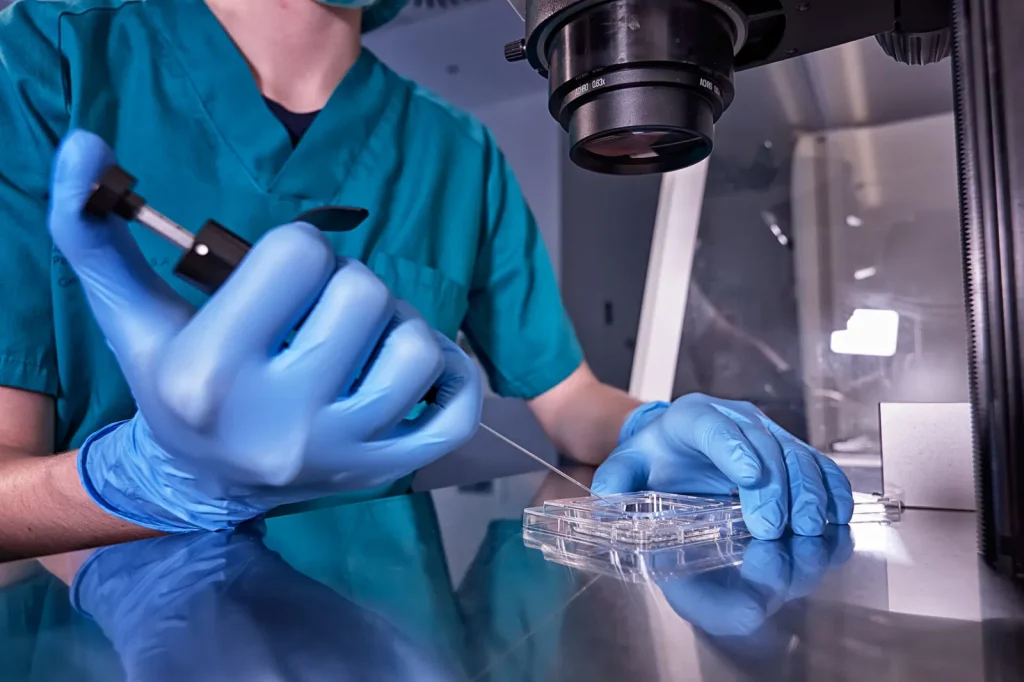AI Steps Into Fertility.

Trials using AI-enabled robots have resulted in twenty births.
Robots driven by AI are helping conceive babies in IVF experiments.
AI is changing how babies are made — literally. So far, 20 babies have been born through IVF trials using robots that automate more than 200 lab tasks once done by embryologists. The Aura system by Conceivable Life Sciences and Overture Life’s similar projects are showing promise abroad, though they’re not yet cleared for U.S. use, The Washington Post reports.
AI is changing how babies are made — literally. So far, 20 babies have been born through IVF trials using robots that automate more than 200 lab tasks once done by embryologists. The Aura system by Conceivable Life Sciences and Overture Life’s similar projects are showing promise abroad, though they’re not yet cleared for U.S. use, The Washington Post reports.
Conceivable’s chief medical officer, Alejandro Chávez-Badiola, highlighted the advantage AI could bring to embryology. He noted that while some clinics have exceptionally skilled embryologists, others struggle to achieve the same success. According to Chávez-Badiola, AI offers a way to “replicate the superstar every time.”
“Every IVF clinic has its ICSI superstar — that one embryologist who consistently gets the best results because they have that special touch,” Chávez-Badiola told The Washington Post.
Serena H. Chen, director of CCRM fertility clinics, acknowledged the promise of the technology but cautioned that new innovations often come with unknown challenges. “For any new system that seems to solve a problem, you’re likely taking on another set of problems you don’t yet understand,” Chen said.
One participant, Alin Quintana, joined a fertility clinic trial in Mexico City in June. After years of medical complications — including a lost pregnancy and emergency fallopian tube surgery — she turned to the robotic system, which automates several stages of IVF, from egg preparation to embryo creation.
For Quintana and her husband, robotic IVF offered a life-changing opportunity — one that would have otherwise been out of reach. The treatment eliminated the heavy financial strain often associated with traditional IVF. Today, she is about 17 weeks pregnant.
Around the world, one in six adults face infertility. Yet the high costs and complex logistics of conventional IVF — from lab fees to embryologist expertise and specialized equipment — keep many from accessing treatment. AI-assisted robotics aim to change that by reducing costs and making fertility care more accessible.
Still, questions remain. Long-term outcomes, regulatory oversight, and ethical considerations are under review. Early trials show that robotic systems can perform on par with human-led methods, even selecting viable sperm and embryos for fertilization and early growth. However, concerns persist about pregnancy health, scalability, cost efficiency, and ensuring equitable access to this emerging technology.


